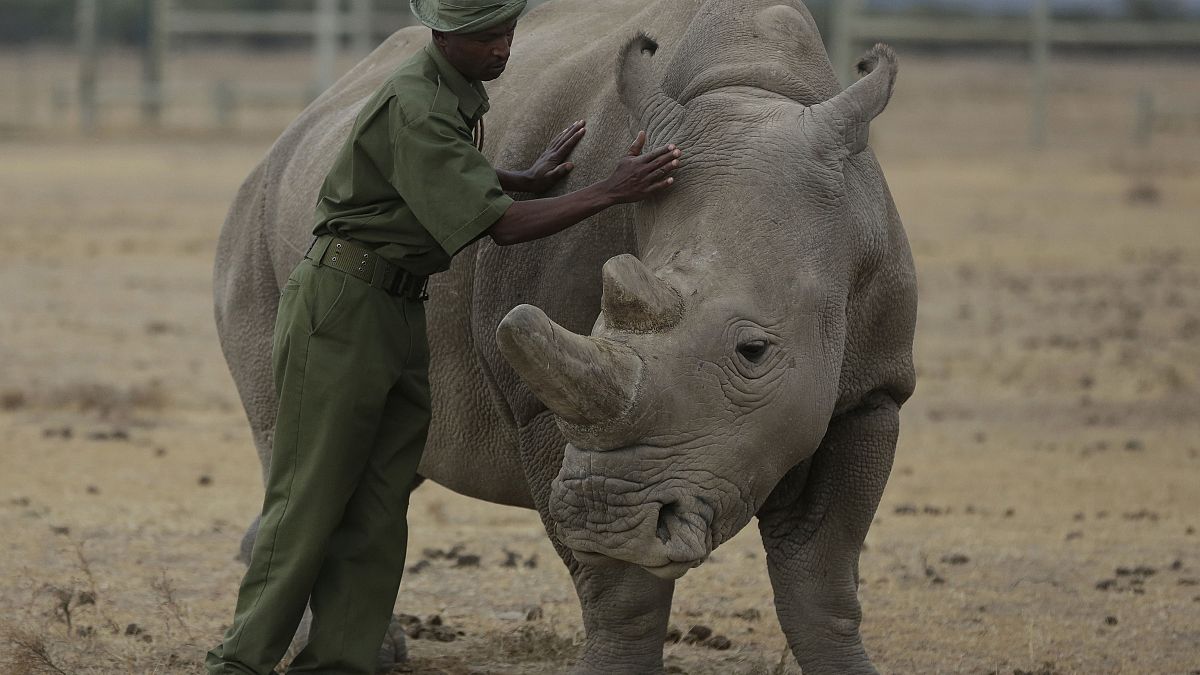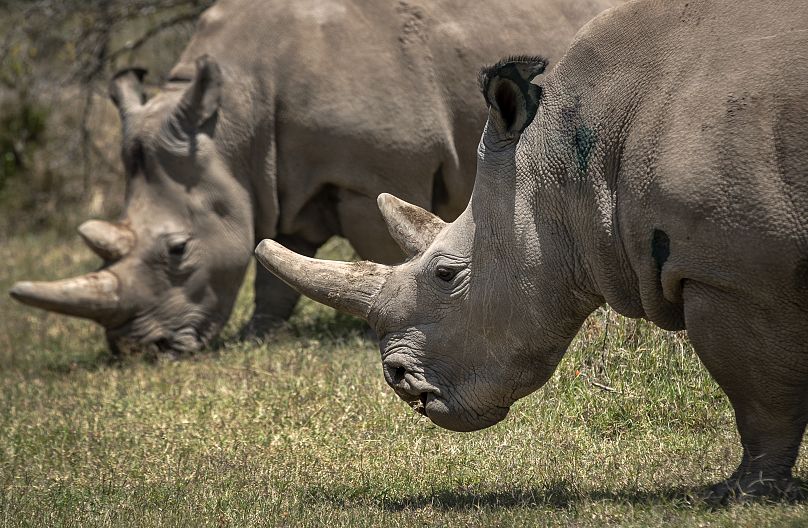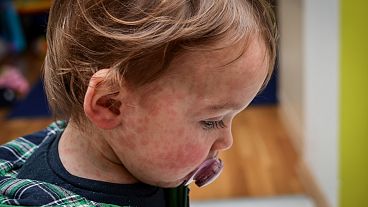The first successful IVF pregnancy in a rhino provides hope that scientists can save the northern white rhino from extinction.
Scientists hope that the first pregnancy of a rhinoceros after an embryo transfer could pave the way to save the nearly extinct northern white rhino subspecies.
The method was tested in another rhino subspecies, with researchers successfully creating a southern white rhino embryo in a lab.
Scientists and veterinarians transferred two southern white rhino embryos into a surrogate mother at a conservancy in Kenya and confirmed a pregnancy of 70 days.
The success allows them to "now safely move to the transfer of northern white rhino embryos - a cornerstone in the mission to save the northern white rhino from extinction," the group said in a statement Wednesday.
There are only two remaining northern white rhinos in the world.
Najin, a 34-year-old, and her 23-year-old offspring, Fatu, are both incapable of natural reproduction, according to the Ol-Pejeta Conservancy where they live.
The last male northern white rhino, Sudan, was 45 when he was euthanised in 2018 due to age-related complications. He was Najin's sire.
Scientists stored his semen and that of four other dead rhinos, hoping to use them in vitro fertilisation (IVF) with eggs harvested from female northern white rhinos to produce embryos that eventually will be carried by southern white rhino surrogate mothers.
Some 30 northern white rhino embryos have been cryopreserved in Berlin, Germany, and Cremona, Italy.
Surrogate rhino mother dies
The team learned of the pregnancy after the death of the surrogate southern white rhino mother, Curra, in November 2023.
The rhino was infected when spores from the clostridium strain were released from the soil by floodwater, and the embryo was discovered during a post-mortem examination.
"In January 2024, it was confirmed through the analysis of the foetus DNA that the pregnancy resulted from the embryo transfer," according to a statement from the Leibniz Institute for Zoo and Wildlife Research.
Scientists are very optimistic about their findings.
"Now we have the clear evidence that an embryo that is frozen, thawed, produced in a test tube can produce new life and that is what we want for the northern white rhino," said Thomas Hildebrandt, lead researcher and head of the Department of Reproduction at BioRescue, a global consortium of scientists and conservationists.
Roughly 20,000 southern white rhinos remain in Africa. That subspecies and another species, the black rhino, are bouncing back from a significant reduction in their populations due to poaching for their horns.
Some conservation groups have argued that it is probably too late to save the northern white rhino with IVF, as the species' natural habitat in Chad, Sudan, Uganda, Congo and Central African Republic has been ravaged by human conflict.
Sceptics say the efforts should focus on other critically endangered species with a better chance at survival.




